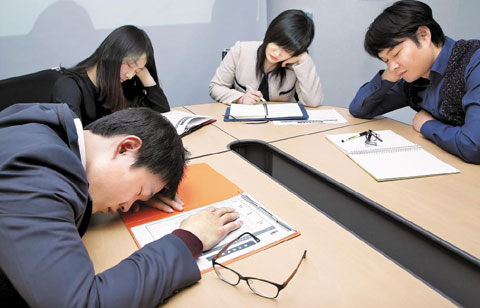South Korea has reduced working hours from 68 to 52 hours a week, in a move to improve labor productivity and the quality of life for its citizens.
Data from 2017 shows South Koreans work the second-longest hours among the 35 member states of the Organization for Economic Cooperation and Development (OECD) below-average wages.
The National Assembly Committee on Environment and Labor on Tuesday passed a revision to the Labor Standards Act shortly after a subcommittee agreed to cut 16 hours off a regular working week.
The bill includes Saturdays and Sundays within the scope of a working week, and plans to enforce the changes in phases depending on the scope of the company, News 1 reported.
Workplaces with more than 300 workers will adopt the shorter hours from July this year, those with 50 to 299 employees from January 2020 and those with five to 49 employees from July 2021.
Also, 21 industries that were exempted from restricted working weeks, including financial and insurance services, research and development, broadcasting, and accommodation, were removed from the list.
Only five categories, most of which are shipping and health care services, will be considered exceptional cases.
Pay rates for working on holidays remained the same.
Employees who work less than eight hours on a public holiday must be paid 150 percent of their nominal wage or 200 percent if eight hours are exceeded.
Both ruling and opposition political parties reached a consensus on the deal, however an umbrella union opposed the move, demanding wages for working on a holiday be raised to 200 percent, regardless of the hours.
Korea Federation of SMEs also showed concern, saying that SMEs in the service sector could struggle due to the lack of staff and higher labor costs on public holidays and weekends.
It called on the government to prepare support measures to help small businesses deal with the shortage of staff and invest in facilities, Yonhap reported.
Lawmakers are set to pass the bill on Wednesday at a parliamentary session.































